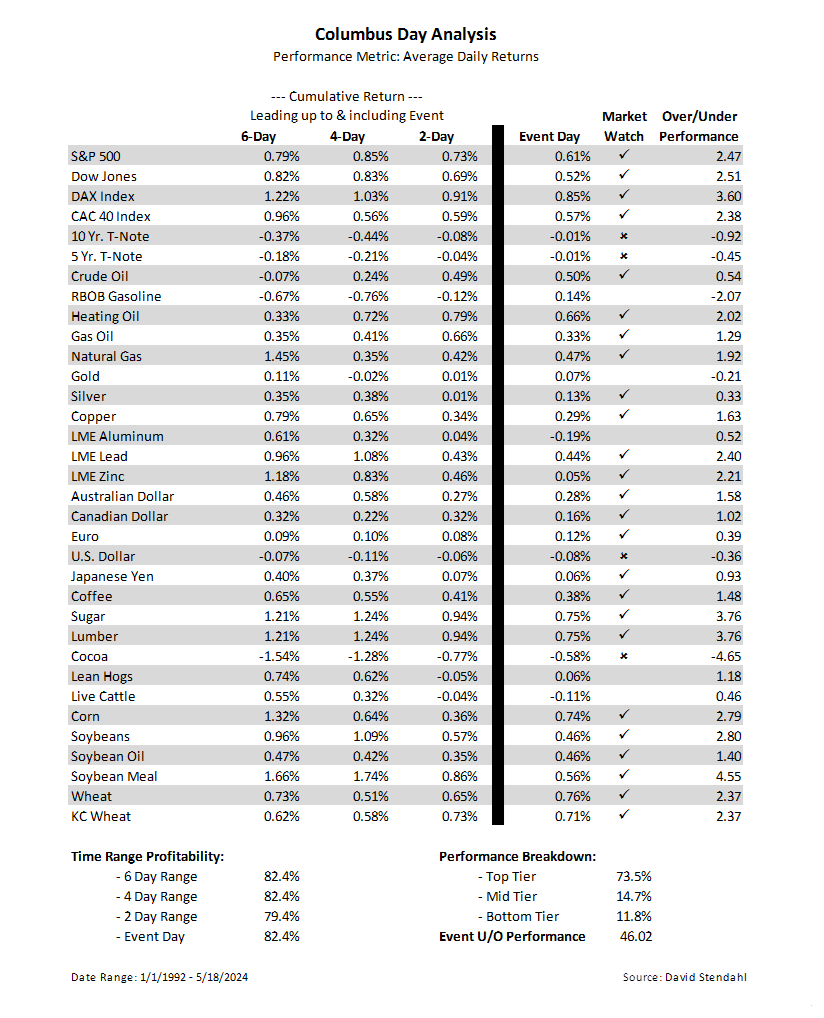Event: Columbus Day
Columbus Day was originally celebrated in New York City in 1792, 300 years after Christopher Columbus landed in the Americas. In 1934 U.S. President Franklin Delano Roosevelt named Columbus Day a national holiday and set the date for the holiday on October 12th. Then in 1971, the date was changed to the second Monday in the month of October. Because who amongst us does not like a three-day weekend.
The holiday has been controversial almost since its inception, and a growing number of states and cities have swapped Columbus Day for “Indigenous People’s Day, to acknowledge the painful history and atrocities experienced by Tribal Nations and communities following the arrival of European explorers.
The questions is … Will the markets have the wind in their sails heading into Columbus Day?
Market Comparision
How do the markets perform leading up to and including Columbus Day? The analysis table below breaks down each of the 30+ markets into four separate trading periods. These time frames span 6-days, 4-day, 2-days, and the event day itself. The return performance for each time frame is measured against its normal performance during the year to calculate a final over or underperformance return. This metric quantifies, in percentage points, the advantages or disadvantages associated with Columbus Day. Markets highlighted with a checkmark or an “x” should be closely monitored for potential strengths or weakness heading into the event.

Calendar Breakdown by Events
All trading involves risk. Leveraged trading has large potential rewards, but also large potential risk. You must be aware of the risks and be willing to accept them in order to invest in the futures and options markets. Don’t trade with money you can’t afford to lose. This is neither a solicitation nor an offer to Buy/Sell futures or options. No representation is being made that any account will or is likely to achieve profits or losses similar to those discussed. The past performance of any trading system or methodology is not necessarily indicative of future results.
Our strategies have not been developed based on knowledge of or with reference to your particular circumstances, such as financial position, goals, risk-reward preferences, tax situation, brokerage arrangement, investment or trading experience, and so forth. Hence no content or model published here constitutes a recommendation that any particular security, portfolio of securities, transaction, or investment strategy is suitable for any specific person. You alone are solely responsible for determining whether any investment, security or strategy, or any other product or service, is appropriate or suitable for you based on your investment objectives and personal financial situation. More
